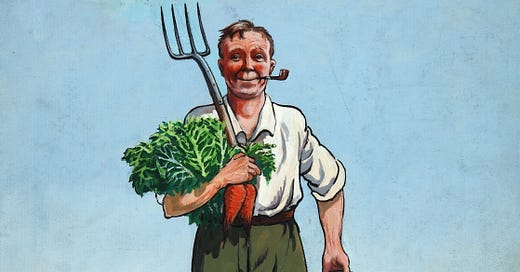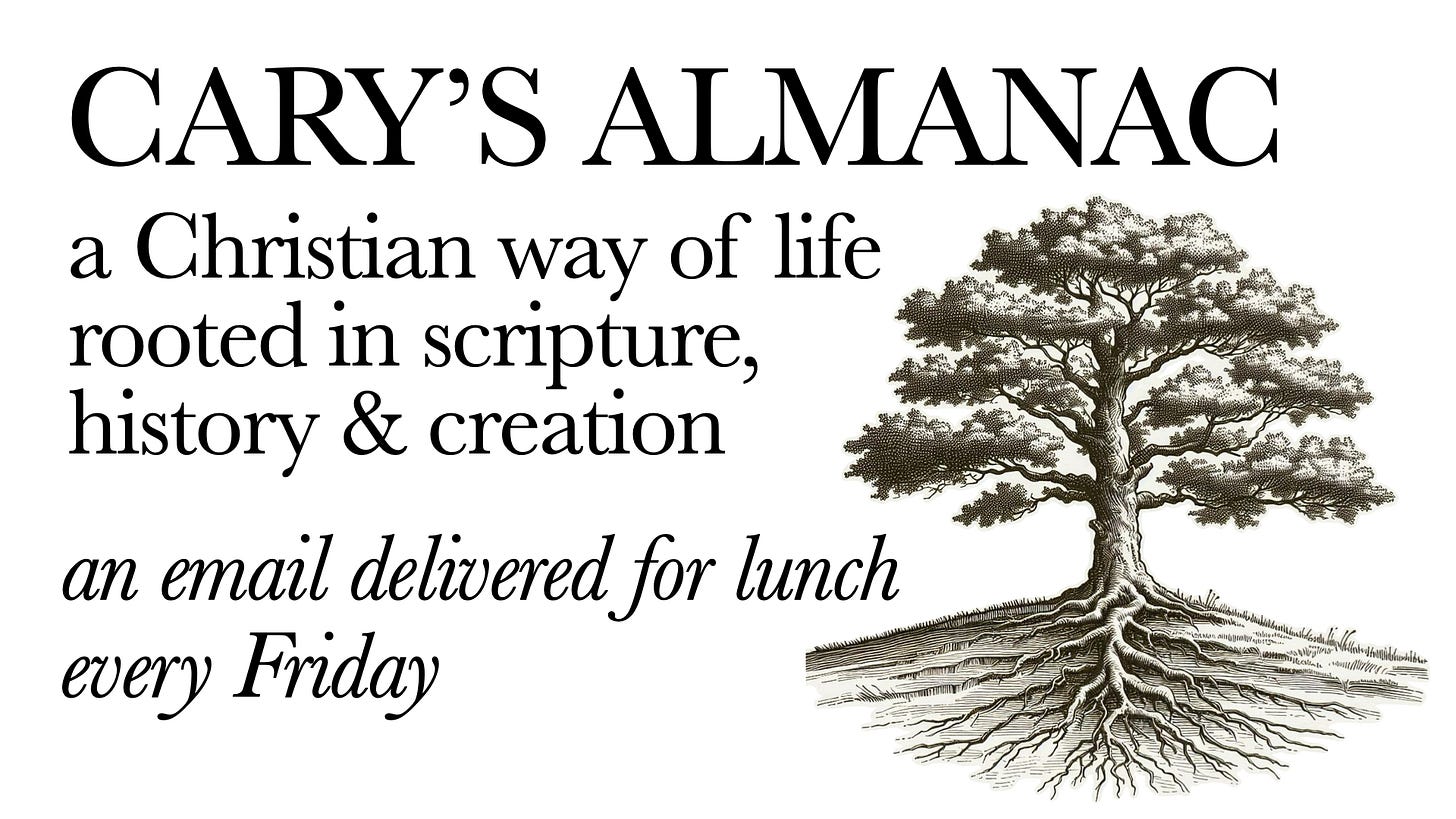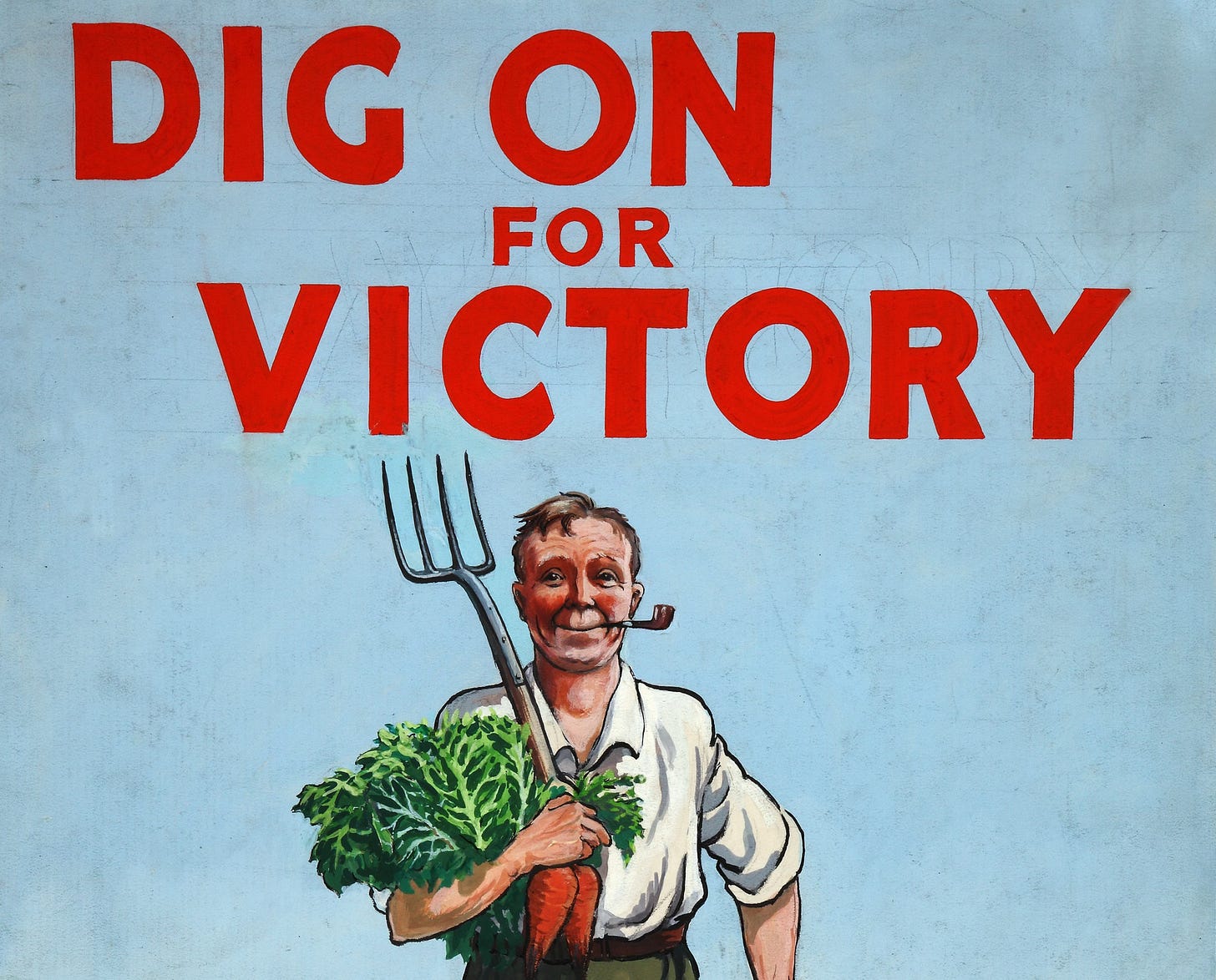My new show, God the Bible and Everything (in 60 minutes) is unveiled this coming week at St Stephen’s Church in Westbourne Park in London on Thursday 27th Feb. The following week, I’m at St Cuthbert’s Wood Green, London on Wed 5th March and then Endcliffe in Sheffield on Saturday 8th March. Tickets for all those dates, and other dates in Shrewsbury, Walton-on-Thames and numerous other places here:
If you receive this almanac via email, there’s a chance the use of the word ‘Sexagesima’ means it will be diverted into your spam filter. It is strange and troubling word, but don’t worry. It means ‘sixtieth’ in Latin and is applied to the Second Sunday before Lent, since it is about sixty days before Easter. This pre-season build up to Lent, known as Gesimatide (nope, me neither), also includes Septuagesima and Quinquagesima Sundays, before and after this coming Sexagesima Sunday.
If you don’t receive this almanac via email, why not subscribe now? It’s every Friday and completely free:
At first glance, Lent is a season of penitence and reflection. But the church calendar helps us understand that it is also a test of faith since we do not just merely put certain foods aside but finish them up before Lent. In so doing, we commit ourselves to God’s provision through the coming growing season and harvest.
This chimes with Psalm 85, which I’ve been looking at over the last couple of weeks. It is a Psalm which is concerned with food scarcity and security.
The Surprising Rationale for Rationing
Let us begin by going back to a time when food security was a pressing issue. In 1939, three Cambridge scientists ran a top-secret research project. It was not about radar or code cracking. It was about food. At the time, Britain was importing 55 million tons of food from across the world which, for a country of fewer than 50 million people, seems like a lot. There was a concern that war was looming and German submarines would repeat their success of the First World War and hit Britain where it really hurt: in the larder.
So Elsie Widdowson, Robert McCance, and Frank Engledow tested a diet of British produce they hoped would be sufficient for farm or factory workers. Six volunteers were taken hiking and cycling through the Yorkshire Dales and the Peak District on a strictly rationed diet. The experiment was an exhausting but surprising success. The volunteers reported they felt full of energy for the rigorous exercises they had to perform. There was only one side effect: an increase in flatulence.
The Government’s rations were more generous than the experiment had been, but it was a relief to learn that the British people could be literally fighting fit without imported food. We assume rationing was introduced to ensure there was enough food to go around. In fact, it was introduced to ensure everyone had enough food to work and to fight.
Milk and Honey
The cause of the concern in Psalm 85 is not a threat of invasion and destruction as in Psalm 83, but a lack of food. On no fewer than 22 occasions in the Old Testament, Canaan is described as a land ‘flowing with milk and honey’ but Psalm 85:1 suggests that the taps have been turned down to a trickle.
LORD, you have been favourable to your land.
You have restored the fortunes of Jacob.
Why else remind the Lord of his favour shown to the land in the past? It is perhaps less subtle in v12 which looks forward to a time when “our land will yield its increase,” implying that times are hard and famine is beckoning.
Some people today can remember rationing in the UK which continued into the 1950s. But most of us cannot comprehend a shortage of food, let alone the sickening fear of running out of food completely, although one may have experienced that dread when in serious debt and food is simply not affordable. The words ‘failed harvest’, however, have chilled most people in most of human history. Without enough grain, you may struggle to avoid starvation in the winter. But you may also not have enough seed to plant next year. A harvest failure can be a death spiral. A weakened population is, in turn, easier prey for enemies, prone to be attacked and plundered.
Kicked in the Breadbasket
In the last few years, there has been much talk of ‘food security,’ which is essentially producing our own food. This protect the nation’s food supply from geopolitics and international disputes. The Russian invasion of Ukraine, ‘the breadbasket of Europe’, sparked all kinds of food-related problems, shortages and price rises. Some argue for home-grown food for environmental reasons as it lowers food miles. Others argue that food produced locally means we can have confidence in animal welfare standards. For some, it’s about supporting one’s own farmers and the rural population.
There are many good reasons to seek ‘self-sufficiency’. But the Lord wants us to be ‘God-sufficient’. In the Bible, we see how the provision of food is inextricably linked to our relationship with God. From Genesis 1 and the seed-bearing plants given for food, to the provision of Manna in the desert in Exodus 16. The Lord says:
“Behold, I will rain bread from the sky for you, and the people shall go out and gather a day’s portion every day, that I may test them, whether they will walk in my law or not. It shall come to pass on the sixth day, that they shall prepare that which they bring in, and it shall be twice as much as they gather daily.” (Exodus 16:4-5)
God did not provide food monthly or even weekly but daily. In fact, the manna would not last the night. And this was a test. Some failed. Those who kept manna back found a putrid mass of maggots in the morning. But the manna would always come the next day, except on the Sabbath when the maggots miraculously stayed away.
In John’s gospel, we see direct parallels when Jesus feeds the 5000 just before the Passover, reminding the original audience of the Exodus. The idea of testing is subtly slipped into Jesus’s words to Philip when he asks him how they would feed so many.
He said this to test him, for he himself knew what he would do. (John 6:6)
The Feeding of the Five Thousand is the only miracle in all four gospels. Could it be so important because it is about food, the most basic requirement for human life? This would challenge our basic notion that food is merely fuel and could easily be replaced by pills and powders.
Our Daily Bread
Food is of critical importance. It is found in the central line of the Lord’s Prayer: ‘Give us each day our daily bread.’ We are to depend on God for food daily. It comes from him, not new agricultural policies or techniques.
As a nation, we are far from depending on God, which is why we are not experiencing food security but food anxiety. We’ve almost forgotten what food is. Our convenience stores are laden with products, full of chemicals and emulsifiers. But for whose convenience is that? Mostly the producer and the supermarkets, since the food needs to last or the maggots will come.
Jesus’ feeding of the five thousand shows that God does not just give us daily bread. Five barley loaves and two fish not only satisfied the crowd. They collected twelve baskets of leftovers. From five barley loaves? Our God doesn’t just have a sense of humour, but is abundant and generous, giving to the point of overflowing.
Let us turn back to the Lord for his provision, as does the writer of Psalm 85, that “our land will yield its increase.” He is our food security.
Given that food is so abundant in England, it is hard to see how we can lean into Sexagesima, running down our supplies to show our faith in Lord. But we could start by giving thanks to the Lord for every meal, for our daily bread. Do we even do that?
All other suggestions along these lines gratefully received. Please leave a comment below.
If you enjoyed this post, could you share it with someone?







We give thanks for pud, with delight, joy and usually a flourish of the spoon if one is required.
More beautiful wisdom. I used to deliberately and painstakingly annunciate each of these gesimas around this time, when Vicaring. Orthodoxy has 'The Sunday of X' on these Sundays; Zaccheus, The Pharisee and the Tax Collector, The Prodigal Son & finally the Last Judgment. But the food using up happens all through this period. This week is 'Meatfare' - meaning farewell to meat (and fish). Next week 'Cheesefare' and then the fast comes. I hadn't connected this with Ps 85 before. Or realised that rationing served that function. Thank you Cary's Almanac!